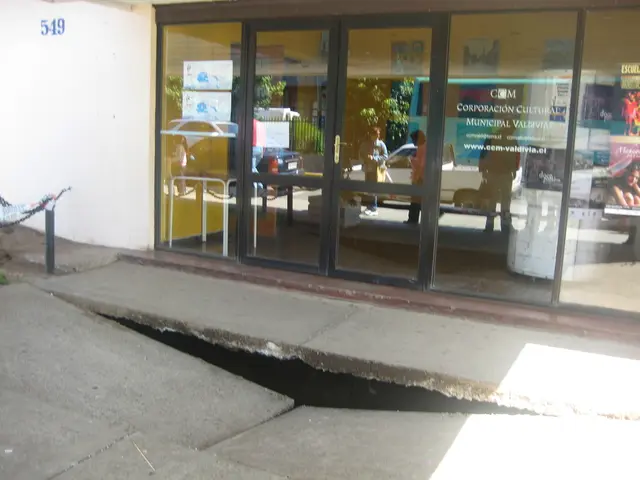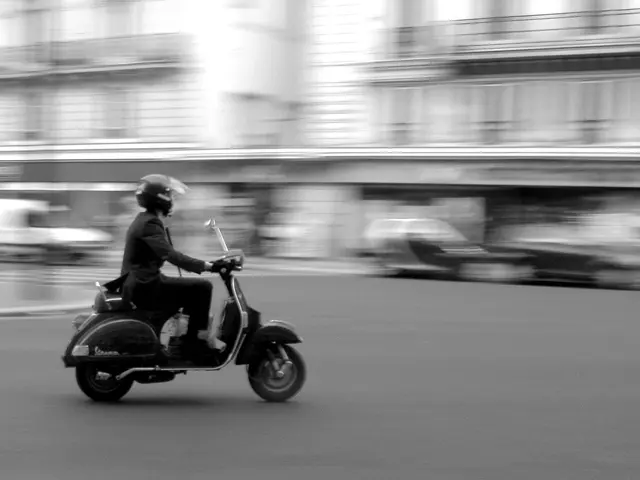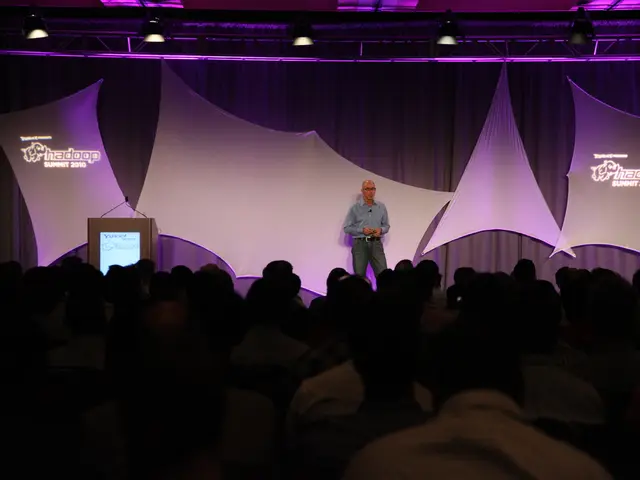Drug testing for PUV drivers conducted by DOTR
Rewritten Article:
Transportation Sec. Vince Dizon announced mandatory drug tests for Public Utility Vehicle (PUV) drivers following a string of road accidents, emphasizing accountability and safety reforms.
In a press conference, Dizon declared that Department Order will mandate the tests to ensure the drivers' sobriety on the road. The announcement comes after a fatal accident in Tarlac City involving a bus and multiple other vehicles, resulting in the deaths of ten people, including children.
Dizon expressed frustration towards a bus driver who refused to submit to drug testing, stating, "It's outrageous that the last driver of Solid North doesn't want to do drug tests. They have no choice. They can't say no. They killed ten people, and they refuse to do drug tests? Is that acceptable? It's laughable. This can't continue."
The Department of Transportation, Land Transportation Office, and Land Transportation Franchising and Regulatory Board will collaborate with the Philippine Drug Enforcement Agency to enforce the drug testing. The PUV drivers are required to undergo regular drug tests every six months.
Dizon also noted that bus companies must have two drivers on duty and that a mere conductor won't suffice as a second driver – the additional driver is essential to prevent fatigue and ensure safety.
Dizon highlighted the importance of road-worthiness assessments for PUVs, stringent driver's education, and full enforcement of the Road Speed Limiter Act of 2016 and the Philippine Transportation Safety Board.
Dizon emphasized the need to restore public confidence in road safety as people do not feel secure on the streets. "The incidents at NAIA and Solid North could happen to any of us. We need our people to feel safe on our roads again," he said.
On a tragic note, a seven-year-old girl and a 28-year-old woman died in an accident at the passenger entrance of Ninoy Aquino International Airport (NAIA) Terminal 1 on a Sunday.
Enrichment Data:
Regulations
- Initial Announcement: The initial Department of Transportation announcement required drug tests every 90 days [1][3][5].
- Drug Testing Frequency: In a recent update, the testing frequency was changed to every six months [2].
- Cost and Responsibility: The cost of drug testing is to be borne by the drivers' operators [3].
- Applicability: The policy applies to drivers, operators, and owners of PUVs, including motorcycle taxis [5].
- Driving Hours: To reduce driver fatigue, driving hours for public utility bus drivers have been decreased from six to four hours [1].
- Clear Guidelines: Key transport groups in Western Visayas have urged clear guidelines and sustainable implementation to ensure the effectiveness of the reforms [1].
Enforcement
- Stricter Penalties: Plans include stricter enforcement, such as a 90-day suspension for drivers based on verified citizen reports [1].
- Vehicle Safety Checks: Stricter vehicle safety checks are also being implemented [1].
- Government Commitment: The government is committed to ensuring safer transport practices, with President Marcos providing direction [2][5].
- Vince Dizon, Transportation Secretary, has increased the frequency of mandatory drug tests for Public Utility Vehicle (PUV) drivers from every 90 days to every six months, following a call for accountability and safety reforms.
- In a press conference, Dizon stated that the cost of these drug tests will be borne by the PUV operators.
- The Department of Transportation, Land Transportation Office, Land Transportation Franchising and Regulatory Board, and the Philippine Drug Enforcement Agency are collaborating to enforce these tests.
- PUV drivers are now required to undergo regular drug tests every six months, and bus companies must have two drivers on duty to prevent fatigue.
- The policy applies not only to PUV drivers but also to the operators and owners of these vehicles, including motorcycle taxis.
- To ensure the effectiveness of these reforms, key transport groups in Western Visayas have urged clear guidelines and sustainable implementation.
- In addition to drug testing, stricter penalties, such as a 90-day suspension for drivers based on verified citizen reports, are being considered.
- Stricter vehicle safety checks are also being implemented to ensure the road-worthiness of PUVs, as part of the government's commitment to promoting health-and-wellness, mental-health, fitness-and-exercise, and overall safety in the transportation industry, which is closely linked to the country's finance, education, science, general-news, and sports sectors.










